Smart Journalism And The Check Against Fake News And Disinformation
Media technology had accelerated the consumption of fake news prior to the election.
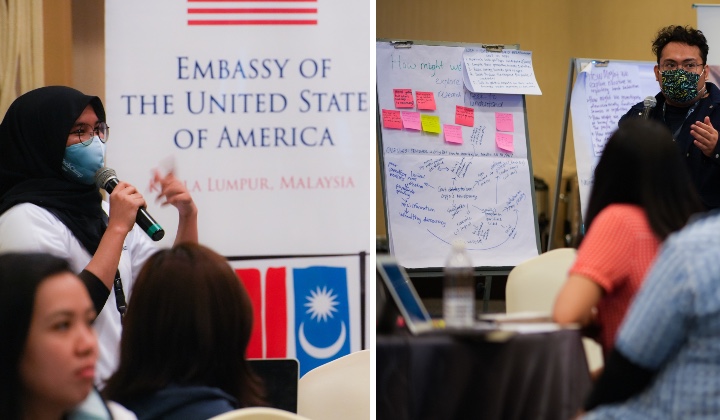
Subscribe to our Telegram channel for the latest stories and updates.
The talk of the town is that the 15th General Election (GE15) could be anytime soon.
As political parties salivate at the opportunity to lead and govern the country, the burden fell on the citizenry to make informed choices.
For many Malaysians, their main source of news is from social media platforms such as Facebook.
Herein lies the danger that undermines the nation’s democracy.
On social media, content can be disseminated among netizens on large scale without third party filtering, fact-checking, or editorial judgement.
Why Do People Fall Prey To Fake News Stories?
Sometimes, people also form opinions about news articles on social media without ever having read them.
The rise of clickbait, which relies on flashy headlines that draw attention, has also aggravated the problem.
Some people only read the headlines and mistakenly take what is in the headlines as fact.
They did not explore further whether there’s doubt or another side expressed in the story.
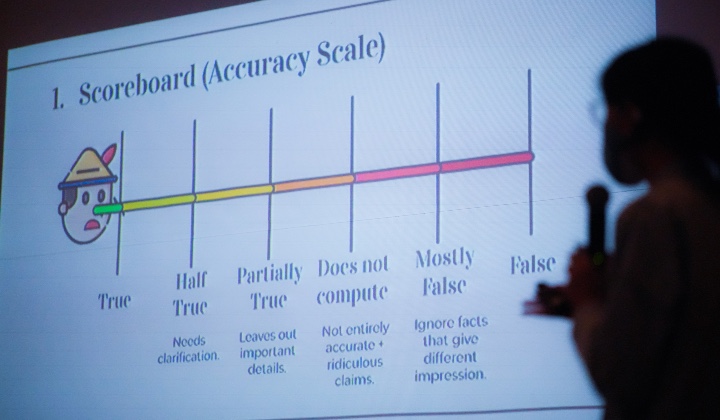
An individual netizen with no track record or reputation can in some cases reach as many readers as The Star, New Straits Times, Astro Awani, Bernama or Sinar Harian, to name a few.
Unscrupulous netizens can mislead, exploit, and manipulate social media discourse with rumors, spam, malware, misinformation, slander, or even just noise.
Indeed, the most popular fake news stories were more widely shared on social media than the most popular mainstream news stories.
Fighting Fake News Workshop
Putting these facts together, the Penang Institute – one of Malaysia’s major think tanks – has been bringing together journalists from across the country.
Through its TechCamp Malaysia 2022: Smart Journalism, Healthy Democracy program, Penang Institute is encouraging bold and innovative thinking among members of the press.
Supported by the U.S. Embassy, the program aims to provide emerging and mid-career journalists with the digital skills and tools to counter disinformation, particularly on the field of political and electoral reporting.
Journalists brushed up their skills and acumen on how fake news can mislead, exploit, and manipulate social media discourse with rumors, spam, malware, misinformation, slander, or even just noise.

Penang Institute Executive Director Datuk Dr. Ooi Kee Beng said the amazing impact of social media and of the smart phone had brought disruptive and transformative changes on how information are conveyed to the citizenry.
The changes were made more drastic by the Covid-19 pandemic, he noted.
What Covid-19 has done is to force us all to admit that media and information literacy is a survival skill in the 21st century. Knowing what to believe is necessarily a measure of intelligence in the future.
Datuk Dr. Ooi Kee Beng on digital information disruption in a post-Covid landscape.

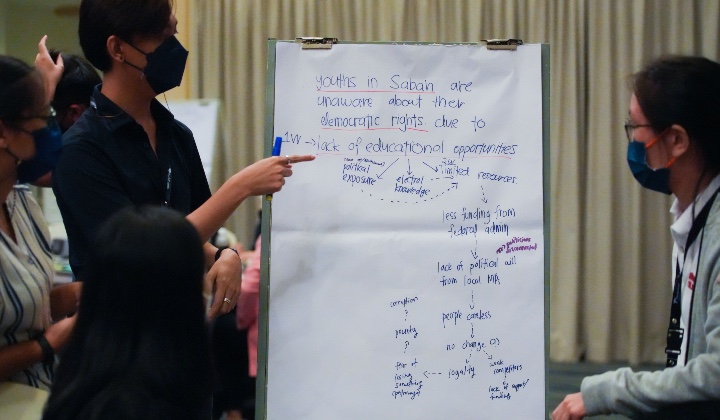
Penang Chief Minister Chow Kon Yeow and U.S. Ambassador to Malaysia Brian D. McFeeters were also present at the workshop.
McFeeters said with the rapid spread of disinformation online, divisions can be created and amplified, electoral processes undermined, and trust in media and democratic institutions eroded.
Through TechCamp, we hope journalists can be inspired and challenged to pursue innovative solutions and produce quality content that will promote healthy democratic societies and strengthen trust in the media.
McFeeters on the importance of social media relative to sources of political news and information.
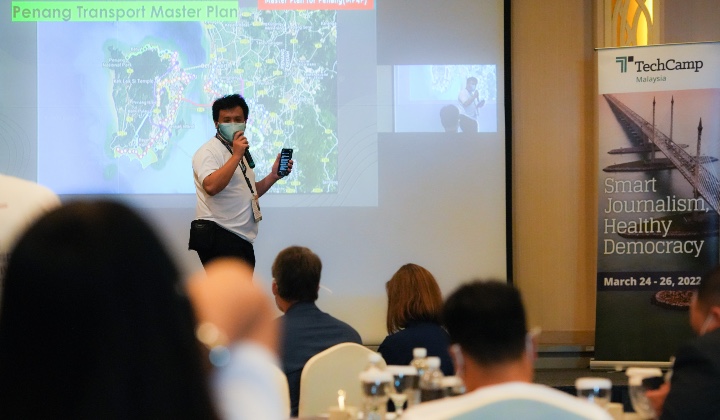
Meanwhile, Chow highlighted that a democracy where the people lack access to impartial, evidence-based, and accurate information is a democracy where the people are disempowered.
Therefore, understanding the mechanics of misinformation and disinformation, and its connections with public opinion formation is a vital challenge for democracy; and it is a challenge that all of us, the politicians, ordinary citizenry, and the media, should undertake together.
Chow on fake news intentionally misleading readers.

Throughout the three-day program from 24 to 26 March, 33 participants from various newsrooms in Malaysia engaged with speakers and industry experts from the U.S., Malaysia, and the ASEAN region.

The program covered training on topics like fact-checking, data visualization, social media for political reporting and more.
On the final day of the program, participants had the opportunity to pitch their solutions to countering disinformation and apply for grants up to USD6,000 (RM25,260) to turn their ideas into action.
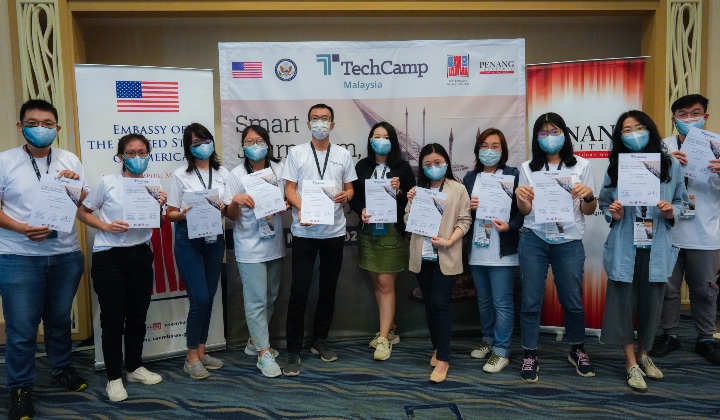
Share your thoughts with us on TRP’s Facebook, Twitter, and Instagram.

